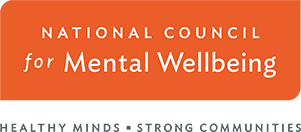Unequal access to health and social services and supports leaves some people more vulnerable to physical and mental illness or disease, creating inequitable health outcomes. This is especially true for people of color, children and adolescents, older adults, uninsured and low-income patients, all of whom are less likely to receive adequate care for mental health and substance use challenges.
Partnerships between integrated health care organizations and social services organizations (e.g., community-based organizations that address housing needs, food and nutritional needs, education needs, employment needs and so forth) are a key strategy to address health inequities and improve the overall health and wellbeing of vulnerable people and populations. It can also reduce strains on the U.S. health care system.
Join us for the second session in our two-part Social Determinants of Health webinar series on Thursday, March 17, 2 – 3 p.m. ET, Social Determinants of Health Part 2: Integrated Care Screening Tools & Implementation Considerations. Hear from subject matter experts and learn more about integrating social care into the delivery of general health, mental health and substance use treatment services.



